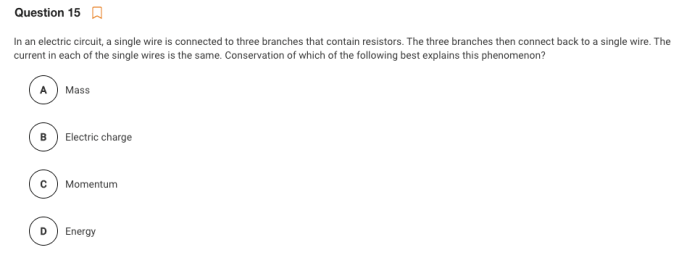Unit 4 Progress Check: FRQ – a comprehensive guide to help you ace your assessment. Delve into the purpose, structure, preparation strategies, and scoring criteria to conquer this challenge with confidence.
This guide will equip you with a thorough understanding of the FRQ format, key concepts, and effective writing techniques. Learn how to craft compelling responses, maximize your score, and elevate your performance in future assessments.
Unit 4 Progress Check: FRQ Overview

The Unit 4 Progress Check: FRQ is a crucial assessment that provides valuable insights into your understanding of the concepts covered in Unit 4. It helps you gauge your progress, identify areas for improvement, and prepare for the final exam.
The FRQ consists of multiple open-ended questions that require you to demonstrate your knowledge and critical thinking skills. These questions typically involve analyzing data, solving problems, and explaining concepts in detail.
Example FRQ Questions
Here are a few examples of FRQ questions from previous years:
- Analyze the graph provided and explain the relationship between variables X and Y.
- Solve the following system of equations and show your work.
- Explain the concept of homeostasis and provide examples from the human body.
Preparing for the FRQ

Preparing for the FRQ (Free Response Questions) in Unit 4 requires a strategic approach to ensure success. By identifying key concepts, reviewing resources, practicing answering sample questions, and developing effective time management strategies, students can enhance their preparedness and maximize their performance.
Identify Key Concepts and Topics
Begin by reviewing the unit Artikel and identifying the core concepts and topics covered in Unit 4. This includes understanding the fundamental principles, theories, and applications discussed throughout the unit. A clear understanding of these key elements will serve as a foundation for answering FRQ questions effectively.
Review Notes, Textbooks, and Other Resources, Unit 4 progress check: frq
Thoroughly review your notes, textbooks, and any additional resources provided by your instructor. Focus on understanding the concepts in depth and identifying any areas where you need further clarification. Highlighting important passages, taking additional notes, and creating summaries can aid in retaining and recalling information during the exam.
Practice Answering Sample FRQ Questions
Practice is essential for success in FRQ. Seek out sample FRQ questions from past exams, textbooks, or online resources. Attempt to answer these questions under timed conditions to simulate the actual exam experience. Analyze your responses, identify areas for improvement, and seek feedback from your instructor or peers.
Develop Effective Time Management Strategies
Time management is crucial during the FRQ exam. Plan your time wisely by allocating a specific amount of time for each question. Prioritize questions based on their difficulty and point value. Use the first few minutes to read and understand the question thoroughly, and then allocate the remaining time for planning, writing, and reviewing your response.
Writing a Successful FRQ Response

A well-written FRQ response is clear, concise, and well-organized. It presents a strong thesis statement and supports it with specific evidence and examples. The response uses appropriate language and terminology and is organized logically and coherently.
Clear and Concise Thesis Statement
A clear and concise thesis statement is essential for a successful FRQ response. The thesis statement should state the main argument of the response and should be supported by the evidence and examples presented in the response.
You can take a break from studying for the unit 4 progress check: FRQ by playing Tiempo de Juego: AP Spanish . It’s a fun and interactive way to practice your Spanish skills. And when you’re done playing, you can come back to your studies feeling refreshed and ready to ace that progress check.
Providing Specific Evidence and Examples
Specific evidence and examples are essential for supporting the thesis statement. The evidence and examples should be relevant to the topic and should be presented in a clear and concise manner.
Using Appropriate Language and Terminology
The response should use appropriate language and terminology. The language should be formal and academic, and the terminology should be accurate and precise.
Organizing the Response Logically and Coherently
The response should be organized logically and coherently. The response should flow smoothly from one point to the next, and the transitions between points should be clear and concise.
Scoring and Feedback

Your FRQ responses will be scored based on specific criteria, including:
- Content accuracy and completeness
- Organization and clarity
- Use of evidence and examples
- Writing style and mechanics
Feedback on your responses will provide insights into your strengths and areas for improvement. Pay attention to the specific comments provided and use them to enhance your understanding of the concepts tested.
Strategies for Improving FRQ Performance
To improve your performance on future FRQ assessments, consider the following strategies:
- Review the scoring criteria carefully.
- Practice writing FRQ responses under timed conditions.
- Seek feedback from your instructor or peers.
- Identify your areas for improvement and develop specific strategies to address them.
- Utilize available resources, such as study guides and online tutorials.
FAQ Guide
What is the purpose of the Unit 4 Progress Check: FRQ?
The FRQ assesses your understanding of key concepts covered in Unit 4, providing valuable feedback on your progress and areas for improvement.
How should I prepare for the FRQ?
Review unit materials, practice answering sample questions, and develop effective time management strategies to ensure a successful performance.
What are the scoring criteria for the FRQ?
Responses are evaluated based on clarity, organization, evidence-based support, and appropriate use of language and terminology.
